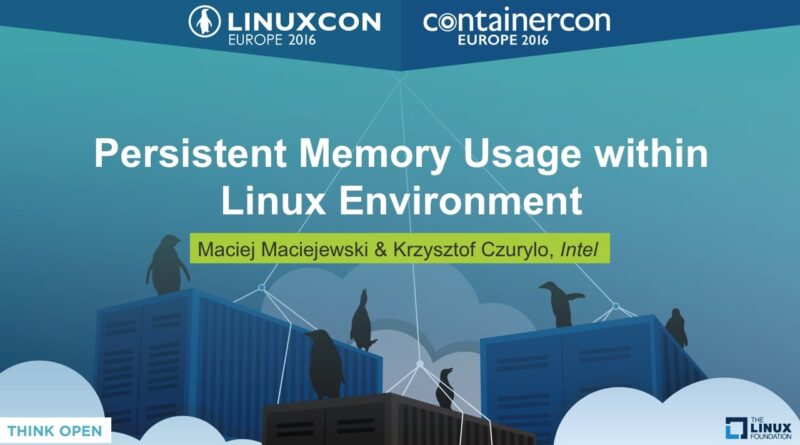Persistent Memory Usage within Linux Environment by Maciej Maciejewski & Krzysztof Czurylo, Intel
Persistent Memory Usage within Linux Environment – Maciej Maciejewski & Krzysztof Czurylo, Intel
Byte-addressable Persistent Memory is an emerging technology expected to soon have a dramatic and disruptive impact on software. Usage of persistent memory requires a different approach to data handling within applications.
In this talk we will examine the primary differences between persistent memory, storage devices, and regular DRAM. We shall present how Persistent Memory is exposed to the OS with ACPI extensions, and describe the resulting changes made upstream to the Linux kernel to provide direct access (known as “DAX” in Linux). We shall present how versatility of Persistent Memory can be utilized by the applications, and what impact does it have on the overall system. Finally, an open source library, known as the NVML (http://pmem.io), providing persistent memory allocation, transactions, and other features useful to applications will be shortly described.
About Krzysztof Czurylo
Krzysztof Czurylo is a Software Architect at Intel, having over 15 years of experience in databases, networking/telecommunication and 3D graphics (OpenGL). For the last two years, he is mostly focused on persistent memory programming models and algorithms providing effective and fail-safe usage of Non-Volatile Memory, as well as adoption of the existing software to use persistent memory. Currently, he is also responsible for Non-Volatile Memory Library architecture (http://pmem.io).
About Maciej Maciejewski
Maciej Maciejewski is a software professional working in a high-tech industry since 10 years. For eight years he has worked at ADVA Optical Networking as a Senior Software Manager, and an architect on distributed and stateless applications within network management systems area. Currently he is working at Intel, where he is focusing on software solutions operating on the next-gen non-volatile memory.
linux foundation



